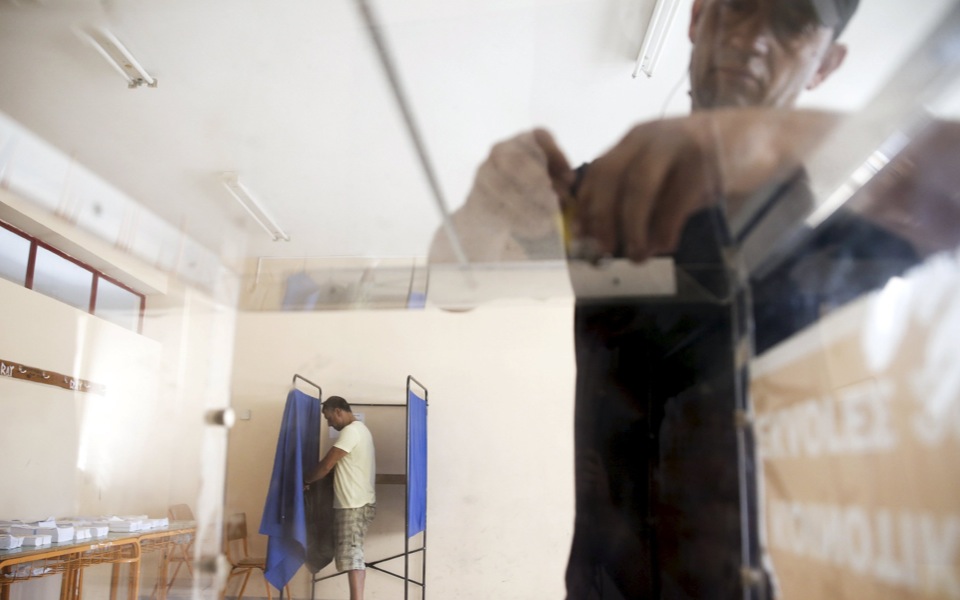Greek election polls swing towards SYRIZA as campaigning ends

A flurry of late polls on Friday appeared to show Greece’s election shifting in favour of Alexis Tsipras’ leftist Syriza party, as the former prime minister prepared to address the party faithful in a final rally before the weekend vote.
His conservative rival remained within spitting distance, however, after a three-week campaign in which the two men’s ratings have rarely been more than a half a point apart.
None of the surveys suggested either Tsipras or New Democracy leader Vangelis Meimarakis would win an outright majority in Sunday’s election, setting the scene for coalition talks once the result becomes clear early on Monday.
Tsipras led in six polls released on Friday evening — the last day in which polling and campaign are allowed — trending further ahead of conservatives and with the last poll giving him a 2.5 percentage point lead.
Meimarakis won a single poll on Friday, the first of the day.
The evening shift appeared to back Tsipras’ earlier claim that there was a large group of silent supporters ready to vote for Syriza.
"There is a voting body that is below the radar, it is not being traced," Tsipras told Greece’s ANT 1 television.
Neither party is expected to secure the roughly 38 percent vote share needed for a majority in the 300-seat parliament, meaning a coalition is a near certainty.
For example, one poll conducted by Marc for Alpha TV gave Syriza 26.2 percent against 25.1 percent for New Democracy. But it also showed that with the bonus of 50 seats given to the party with the most votes, Syriza could easily forge a coalition with the centrist To Potami party and the socialist PASOK.
Sunday’s result is seen as crucial beyond Greece, which found itself almost ejected from the euro zone earlier this year.
The winner vote will need to oversee deep economic reforms required for an 86 billion euro ($98 billion) bailout brokered in August, a recapitalisation of the country’s banks, and the unwinding of capital controls imposed this year to prevent an implosion of the financial system.
Most parties in the election — including Syriza and New Democracy — are committed to the bailout, albeit with different emphases on such things as labour reform. Polls give all the relatively pro-bailout parties combined support of around 65 to 70 percent of the vote.
But there may be some concerns if Greece cannot form a stable government quickly.
Coalition likely
Given that Greece’s compliance with the bailout programme is at issue, many at European Union headquarters in Brussels and in other European capitals would like to see a broad coalition emerge from the election.
But Syriza, forced to concede the bailout in August with the threat of a disorderly exit from the euro zone looming, has ruled out any pact with New Democracy, which it regards as part of an old guard partly responsible for Greece’s economic woes.
The two parties also disagree on pivotal matters such as freeing up the labour market, collective bargaining and immigration.
Tspiras has pointed to what he sees as Syriza’s success in getting the EU to consider ways of easing Greece’s debt burden.
"We fought the battle until the end and won ground for the country … because there will be a negotiation for debt reduction," he said.
EU sources have told Reuters that euro zone governments, Greece’s biggest creditors, are ready to cap the country’s debt servicing costs at 15 percent of GDP annually over the long-term as part of the promised debt relief to help the economy grow.
New Democracy, meanwhile, has been keen to highlight perceived credibility issues under Syriza, which swept to power in January on the promise of ridding the country of bailouts, only to agree to stringent new austerity terms six months later.
"The question is clear. Should we listen to false promises and wishful thinking, or move forward responsibly and with a national plan?" Meimarakis told cheering supporters in a central Athens square.
[Reuters]





